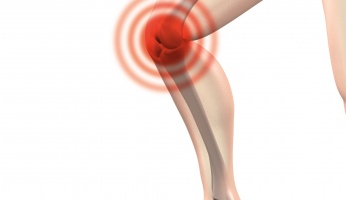What Is BMI And How Important Is It?
 What Is BMI And How Important Is It? www.walkjogrun.net
What Is BMI And How Important Is It? www.walkjogrun.net I am sure you’ve been to the doctor, and he/she probably measured your BMI. And if they have, they probably used that information to determine how healthy you are. But how can they tell, just from your BMI, if you’re healthy? Well, as it turns out, your BMI could be a very good indicator of your health. The heavier you are (compared to your height), the more at risk your health could be.
But, this often begs the question:
What Is BMI In The First Place?
BMI, commonly known as Body Mass Index, is a diagnostic measurement used by doctors to gauge where you are on the health spectrum. It assesses your weight in relation to your height and determines if you’re at a healthy weight. The higher your BMI is, the more at risk you may be for suffering ill health.
What can your BMI show?
It can show if you’re:
- underweight,
- the right weight for your height,
- if you’re overweight and,
- if you’re considered obese.
Studies show, being overweight, or obese may increase your blood pressure, cholesterol, blood sugar, joint injuries, Type 2 Diabetes, and cardiovascular complications. However, if you’re classified as “underweight,” you could suffer from malnutrition, anemia, and even osteoporosis.

Aim To Have A Healthy Body Mass Index
What do doctors consider “healthy”? Let’s look at how BMI is calculated.
Measuring your BMI is very simple. You need your weight (in kilograms) and you divide that by your height (in meters). (To find weight in kilograms, simply divide by 2.2. To get the height, simply divide the centimeters by 100). Once you’ve determined your BMI, find your number on the following chart to see where you are, and what your inherent risk may be.

Depending on where you fall in the ranges, making the right changes can get you closer to the “health,” or optimal category.
- If you’re underweight (less than 18.5), you need to gain weight to get closer to the “healthy” range. Speak with a dietitian, or nutritionist, to develop the right nutrition plan to gain healthy weight (and not just fat weight).
- If you’re in the healthy range (18.5 to 24.9) then you’re right where you need to be. Maintain your current weight, and your risk for developing health issues or chronic diseases drops significantly.
- If you’re in the slightly overweight category (25.0 to 29.9) this simply means you need to lose weight to reduce your risk for life-altering diseases. Speak with a dietitian or nutritionist that can help develop a sound nutrition plan to get you closer to the healthy category.
- If you’re in the last category (obese), it means your BMI is higher than 30. This significantly increases your risk of diabetes, heart disease, cancer, and others.
Focusing on losing weight could improve your health and reduce future health-related illnesses. Although your BMI is a good indicator of future health issues, it may not totally be accurate.
Determining Your Health According To Your BMI
In my years as a personal trainer and nutritionist, I’ve seen many people who have “healthy” BMIs but are anything but healthy.
For example, a young lady, weighing in at 110 pounds with a height of 5’2 was considered healthy, according to the BMI chart. However, she had high blood pressure and cholesterol and elevated blood sugar. Although her BMI showed she was in the “healthy” range, her body fat was extraordinarily high, which caused many health conditions.
On the flip side, a professional football player is labeled “overweight” or “obese,” according to their BMI, but their body fat is extremely low and they are often at a lower risk for health complications.
Although BMI may be a good indicator of future health risks, each individual must be evaluated to determine their true overall risk. Mostly used as a diagnostic tool, it should be used more as a screening process for adults, children, and teens to determine if other tests are needed. Where do you go from here? How to do you change your BMI?
The Steps To Changing Your BMI
Perhaps you’re in the “healthy” range, but you’re in the upper realms of healthy. How can you change your BMI to boost your overall health? The answer is simple: Change your diet and include more exercise. But here’s the issue: Changing one—or even both—is a lot harder than you may think. Still, you have to start somewhere. We often recommend that you make small, lasting changes that you can stick with.
Some small strategies may include:
- Eating smaller portions…
- Increase lean protein intake…
- Cut out added sugar, white bread and flours, and processed foods…
- Increase fruits and vegetable intake…
- Add healthy fats…
- Cut out fried foods…
- Drink more water…
Changing all of these would be a serious task that could derail your progress. You should always start by making one small change each week. Cut down on seconds…drink more water…or cut one cookie from your day.

Each week, pick a new change that builds on what you did last week. Making small dietary changes often cuts down on added calories, so you can control your weight.
The second step is to exercise. Exercise is an easy way to burn calories, build lean muscle mass, and boost your metabolism. Start off slow if you’re a beginner. A brisk walk for 10 to 15 minutes can add benefits to your body. Each week, add another one to two minutes to your time, until you reach 30 to 60 minutes of continuous walking, or fast-paced walking/jogging.
Also, include strength training 1 to 2 times per week. Strength training builds lean muscle mass, which could accelerate your metabolism. Eating the right diet, and including a well-structured exercise program, could drastically change your BMI.
Where To Go From Here Is Up To You
Your BMI is a snapshot of where your health is right now. It provides information to your doctor so he can determine if you’re underweight, overweight, or obese, or if you’re right where you need to be! Although not entirely accurate, your BMI could give vital information to your doctor to determine if additional tests are needed.
If you want to change your BMI, regardless of where you are, finding the right programs is key. Consulting a dietitian, or a nutritionist could advise you on the right program for losing (or gaining) weight to improve your BMI.
Consulting a personal trainer, or exercise physiologist could give you the exercise routine to improving your BMI.
Your BMI measures weight compared to your height to determine your risk for future health complications. Changing your diet, and exercising more, could change your BMI and reduce risk factors associated with heart disease, diabetes, cancer, and other health issues.
References:
- Nuttall FQ. Body Mass Index. Obesity, BMI, and Health: A Critical Review. Nutr Today. 2015 May;15(3):117-128.
- Gutin I. In BMI We Trust: Reframing the Body Mass Index as a Measure of Health. Soc Theory Health. 2018 Aug;16(3):256-271.















